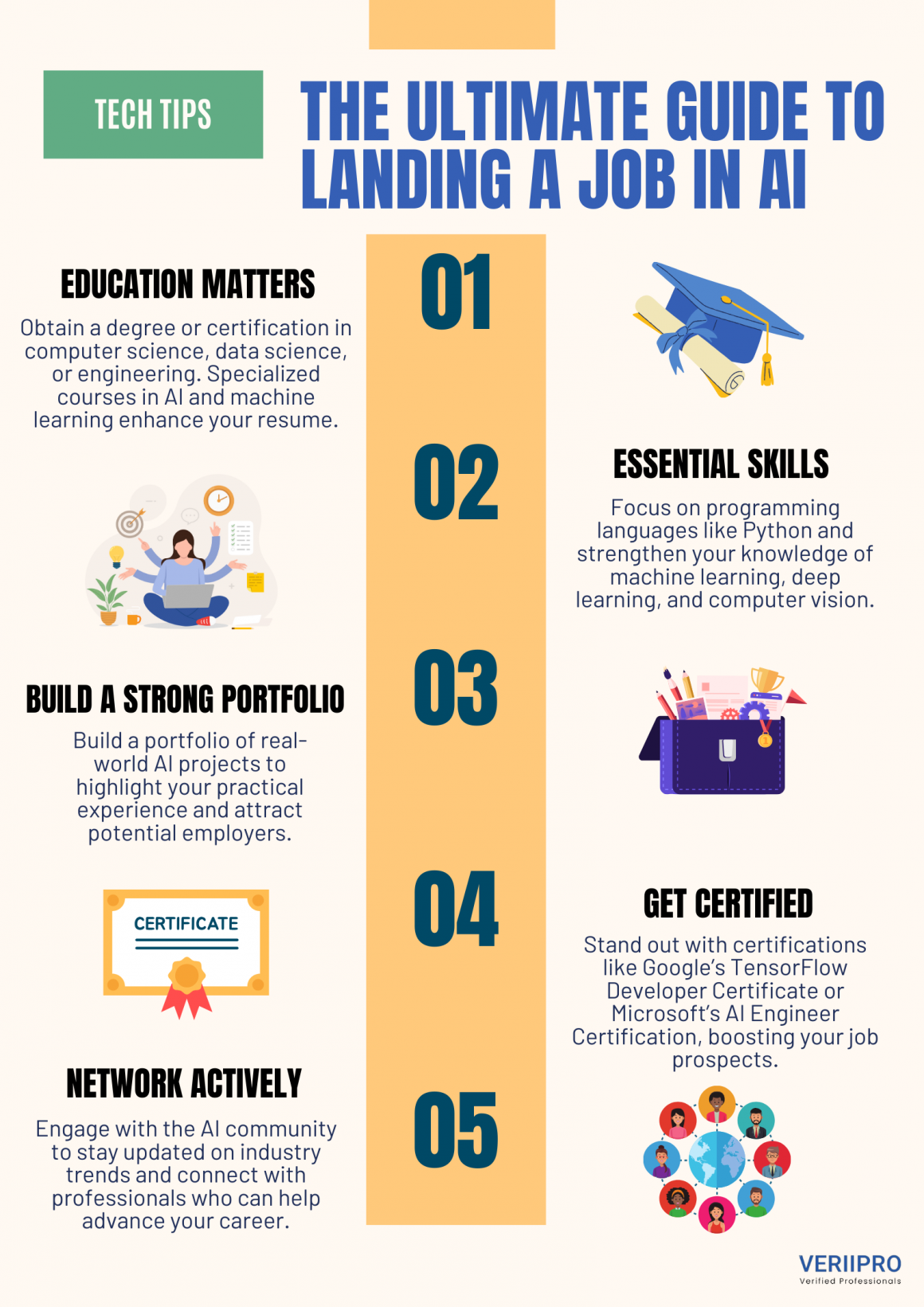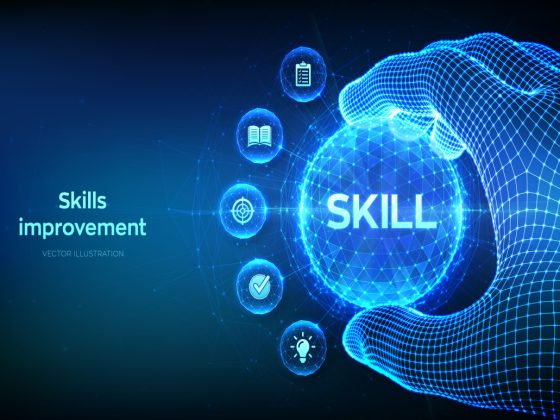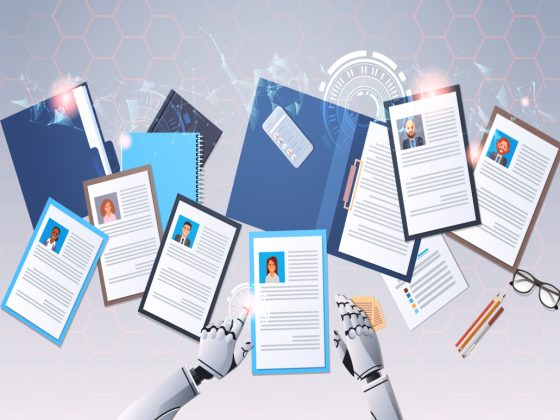The Ultimate Guide to Landing a Job in AI
As the Artificial Intelligence boom continues, investors are pouring money into the industry, confident of massive returns on their investment. Not surprisingly, the AI sector offers some of the most exorbitant salaries in tech.
A 2023 survey by Biz Report stated that AI-related jobs have the potential to offer job-seekers salaries that are a whopping 77% higher on average than other occupations, with some starting salaries as high as $450,000 a year.
Obviously, with such lucrative salaries, the competition for the best AI jobs will be fierce. But how does one actually land an AI-related job in this AI boom? What are recruiters who hire for AI-focused roles looking for? And, how do you prepare for such interviews since the AI space is relatively new? This article shows you how to get jobs in AI, the skills needed, and the salaries for entry-level AI jobs. Let’s dive in.

Introduction to Careers in AI
Look anywhere today – AI is dominating conversations at the workplace, irrespective of domain or role. The demand for AI specialists, AI prompt engineers and much more is on the rise. Developments in AI have impacted almost every industry and organization, from government-run departments to healthcare to non-profits.
Let’s explore the various career options available in this rapidly growing industry.
Data scientist
As they say, data is the new oil. Data scientists play a key role in organizations that rely heavily on large amounts of data to drive business decisions. Using AI, a data scientist gathers and analyzes data from multiple sources for forecasting and predictions and offers data insights.
Machine learning engineer
ML engineers design and develop AI software and AI algorithms that mimic human learning. An ML engineer typically works as part of a larger data science team. They need to collaborate and communicate with data scientists, deep learning engineers, administrators, data analysts, data engineers, and data architects.
Robotics engineer
Robotics engineers design machines that use algorithms to create robotic systems used to perform human and nonhuman duties. This is a specialized role and calls for a master’s degree in robotics, computer science, or engineering. A robotics engineer also builds, designs, maintains, and repairs robots.
AI researcher
AI researchers study emerging AI technologies and develop new models and algorithms that could be the foundation for future AI systems. They usually work in universities, research labs, and private companies. AI researchers focus on advancing the core science of AI, including machine learning, neural networks, and computational intelligence.
Natural language processing (NLP) engineer
An NLP engineer works with human speech patterns and AI speech recognition to simplify the communication that people have with technology. It is their job to make sure that the concerned electronic device “understands” what people are saying.
Computer vision engineer
A computer vision engineer combines the skills of artificial intelligence and machine learning and uses them to help computers see, identify, and process images like humans.
Other careers in AI include:
- Computer engineer
- Manufacturing engineer
- Mechanical engineer
- Robotics automation technician
- Research and development engineer
- Business intelligence developer
- User experience (UX) designer/developer
- AI product manager
Skills Required for AI Jobs
To get a job in artificial intelligence (AI), a bachelor’s degree in computer science or a related major is a must. Those with a postgraduate degree will have an added advantage. To excel in a career as an AI specialist, a strong background in math and statistics, proficiency in programming skills commonly used in AI and machine learning, and a solid understanding of machine learning algorithms are required.
Since many jobs in AI rely on proficiency in programming languages and coding, coding is usually one of the very first skills learned by many people interested in AI.
A few other essential technical skills include the following:
- General-purpose languages: Python and C/C++
- Database management: Apache Cassandra, Couchbase, DynamoDB
- Data analysis and statistics: MATLAB, R, Pandas
- AI platforms: Microsoft Azure AI, Google Cloud AI, IBM Watson
- Data acquisition systems: Physical sensors and wireless sensors
- Digital marketing goals and strategies
- Industry knowledge
As with all jobs, along with professional expertise, some unusual soft skills are also called for. These include curiosity, optimism, and the desire to learn and grow. Add to this, strong communication skills, effective collaboration, analytical skills, problem-solving skills, and management and leadership skills.
Why Choose a Career in Artificial Intelligence?
The obvious reason is that no other field is growing so fast as Artificial Intelligence, opening up a vast array of career paths for those interested in joining the AI boom. Since AI is here to stay for a long time, at least for now, it is also a smart way to future-proof your career.
Some other reasons for choosing careers in AI are:
- High demand: AI specialists are in huge demand as the field is still relatively new. Even entry-level AI engineers in the US earn more than other engineering graduates.
- Plenty of options: More and more industries are now embracing AI in their processes such as banking, finance, business, marketing, healthcare, climate change monitoring, transportation, and the legal system. Those who already have specializations in these fields can explore AI options in these industries.
- Future-proofing: While it is true that many jobs are being lost to AI, it is also true that AI-powered jobs will always future-proof your career. Learning AI skills can help you be ready for future trends and technological changes.
Tips for Landing Your First AI Job
While previous experience in AI can be helpful, it’s not always required since it is still an evolving field. Here are some tips on how to get a job in the AI field:
1. Education
Make sure you have the relevant educational qualifications, degrees, and certifications that get your resume hand-picked by recruiters. A degree or certification in computer science, data science, or engineering is useful. If you have done courses on AI, machine learning, algorithms, and data processing, that will help too.
2. Skills
Hone your programming skills, especially Python. Get familiar with machine learning algorithms, deep learning, natural language processing, and computer vision.
3. Portfolio
If you already possess an impressive portfolio of real-world AI projects that demonstrate your practical experience, it can be invaluable.
4. Certifications
Certifications always give one an edge over the others. Those that can help you gain entry in the AI field are certifications like Google’s TensorFlow Developer Certificate or Microsoft’s AI Engineer Certification.
5. Networking
As they say, your network is your net worth, so make sure you actively engage within the AI community and stay informed about industry advancements.
AI is the future and those who are looking to start their career in AI or make a switch from another existing field, can look forward to a highly lucrative and rewarding career.
Helping you find high-paying AI jobs, and landing interviews at coveted companies is what VeriiPro excels at. Helping thousands of hob aspirants across the US, leading tech job portal VeriiPro can help you discover the best job opportunities and elevate your career. Contact us and get hired today!
Frequently Asked Questions –
What skills are required for a career in AI?
Skills such as programming, machine learning, data analysis, and problem-solving are essential for a career in AI.
What educational background is needed for AI jobs?
A degree in computer science, data science, or a related field is typically required, along with specialized courses in AI and machine learning.
What is the average salary for entry-level AI jobs?
Entry-level AI jobs can have salaries ranging from $70,000 to $90,000 per year, depending on the location and company.
Which AI jobs are currently in high demand?
AI jobs in demand include machine learning engineers, data scientists, AI researchers, and AI software developers.
How can I increase my chances of landing a job in AI?
Gaining practical experience through internships, building a strong portfolio, networking, and staying updated with the latest AI trends can significantly increase your chances.








